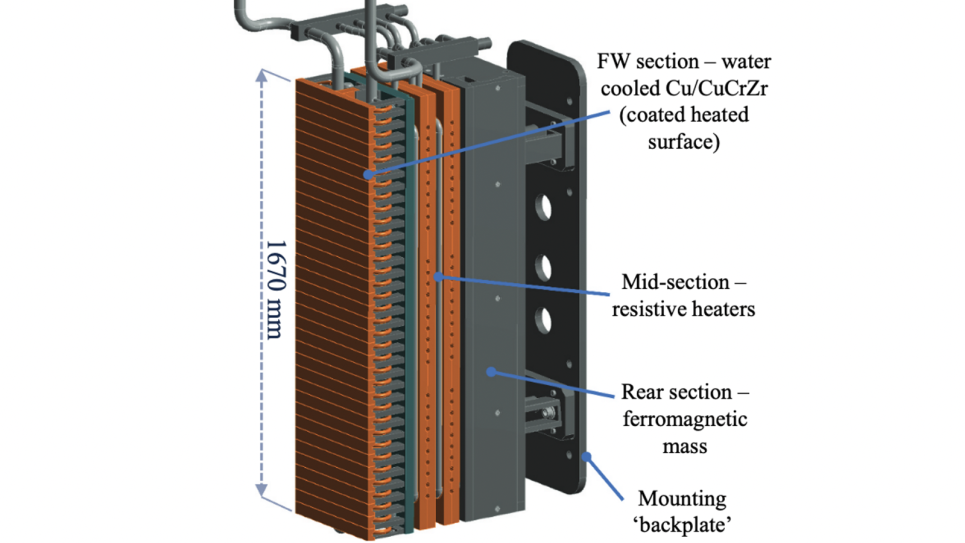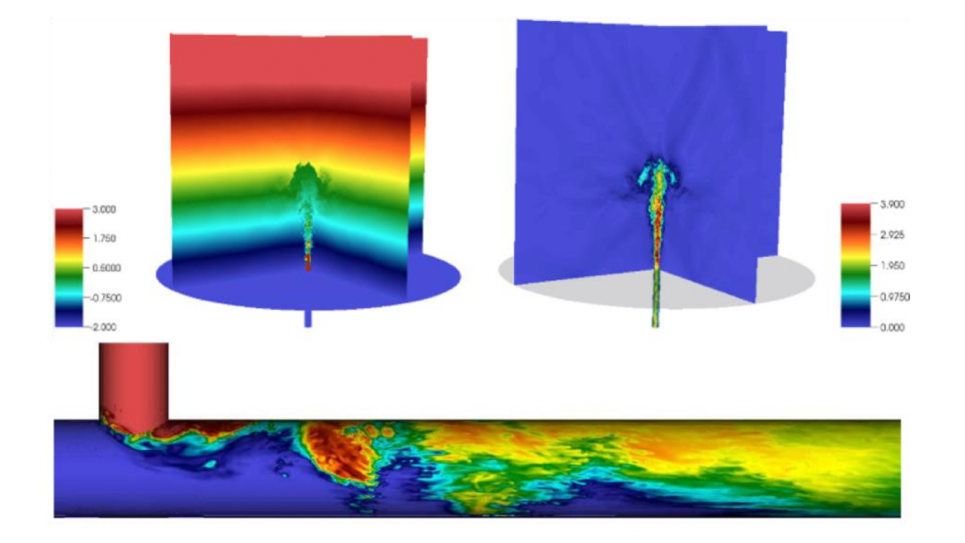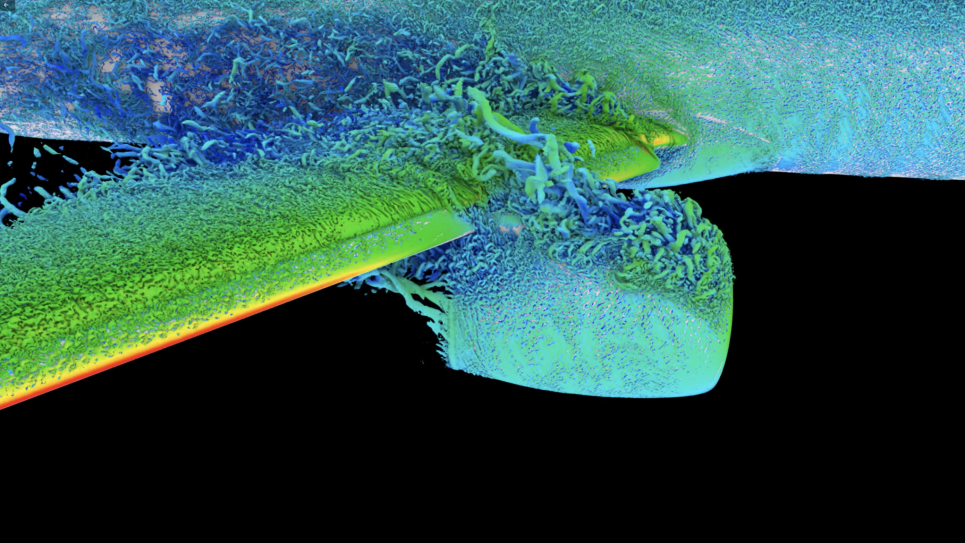Premixed staged combustion (PSC), where fuel is burned in stages, is a new technology that has the potential to improve efficiency while reducing pollutant formation in combustion turbine design. Advanced engine designs from multiple gas turbine companies already incorporate this technology. However, a deeper understanding of the unique interactions between turbulence and combustion chemistry that occur in this reaction regime is needed to advance combustor technology and deliver higher gas turbine efficiency.
This project will use leadership-class computing resources at Oak Ridge National Laboratory in a multi-pronged effort to characterize this important combustion regime and accelerate its application to industrial gas turbine engines. The project is organized in three stages:
1. Assess the performance of current state-of-the-art modeling approaches for PSC
2. Explore poorly understood regions of the PSC state space
3. Apply learning and understanding to impact realistic gas turbine engines
In stage 1, existing modeling approaches will be evaluated to assess their performance in PSC regimes. This task will harness the vast computing power of Titan to compute detailed combustion simulations to answer fundamental questions about how turbulence and chemistry interact in canonical PSC configurations. Results from engineering models will be compared with the detailed simulations and with experiments to identify the most effective modeling approaches for the conditions in today’s gas turbine engines. Stage 2 will use high-fidelity large-eddy simulations to explore combustion regimes that are relevant to where gas turbine engines are heading in the near future, including higher pressures, shorter residence times, and more intense turbulence. Finally, in stage 3, realistic engineering configurations for PSC will be explored using high performance computing. The results of these simulation will provide the fundamental understanding required to use premixed stage combustion effectively in future combustion turbine designs.


